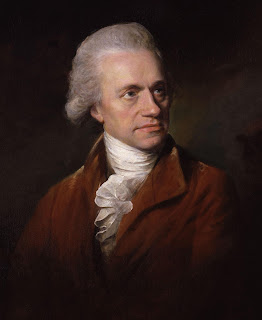William Herschel (1738–1822)
William Herschel (1738–1822) was a German-born British astronomer and composer known for his significant contributions to astronomy. He was born in Hanover, now part of modern-day Germany, on November 15, 1738. Herschel's early education was not extensive, and he initially pursued a career in music as a performer and composer. He eventually moved to England in 1757 and became a naturalized British citizen.
Herschel's most notable achievement was his discovery of the planet Uranus on March 13, 1781. While observing the night sky, he noticed a celestial object that appeared to move differently from the stars. Through continued observations, he realized he had discovered a new planet beyond Saturn, which was later named Uranus. This discovery expanded the known boundaries of the solar system and marked the first new planet discovered since ancient times.
Herschel's impact on science and astrometry (measuring the positions and distances of celestial objects) was profound. His discovery of Uranus challenged the notion that the solar system only consisted of the six planets known since antiquity. This discovery led to a reconsideration of the nature of the solar system and inspired further exploration and observations of the outer regions of space.
In addition to discovering Uranus, Herschel made numerous other contributions to astronomy. He pioneered the use of more extensive and more powerful telescopes, allowing him to observe and catalog many celestial objects. He discovered two of Saturn's moons, Enceladus and Mimas, and he also cataloged many deep-sky objects, such as nebulae and star clusters.
Herschel's work laid the foundation for modern observational astronomy and expanded our understanding of the universe's structure and composition. His contributions to the field were not only in terms of specific discoveries but also in terms of his methodological innovations and his emphasis on systematic observation and data collection.
Overall, William Herschel's discovery of Uranus and his significant contributions to astronomy played a crucial role in shaping our understanding of the solar system and the broader cosmos, leaving a lasting impact on astrometry and the scientific community.



Comments
Post a Comment